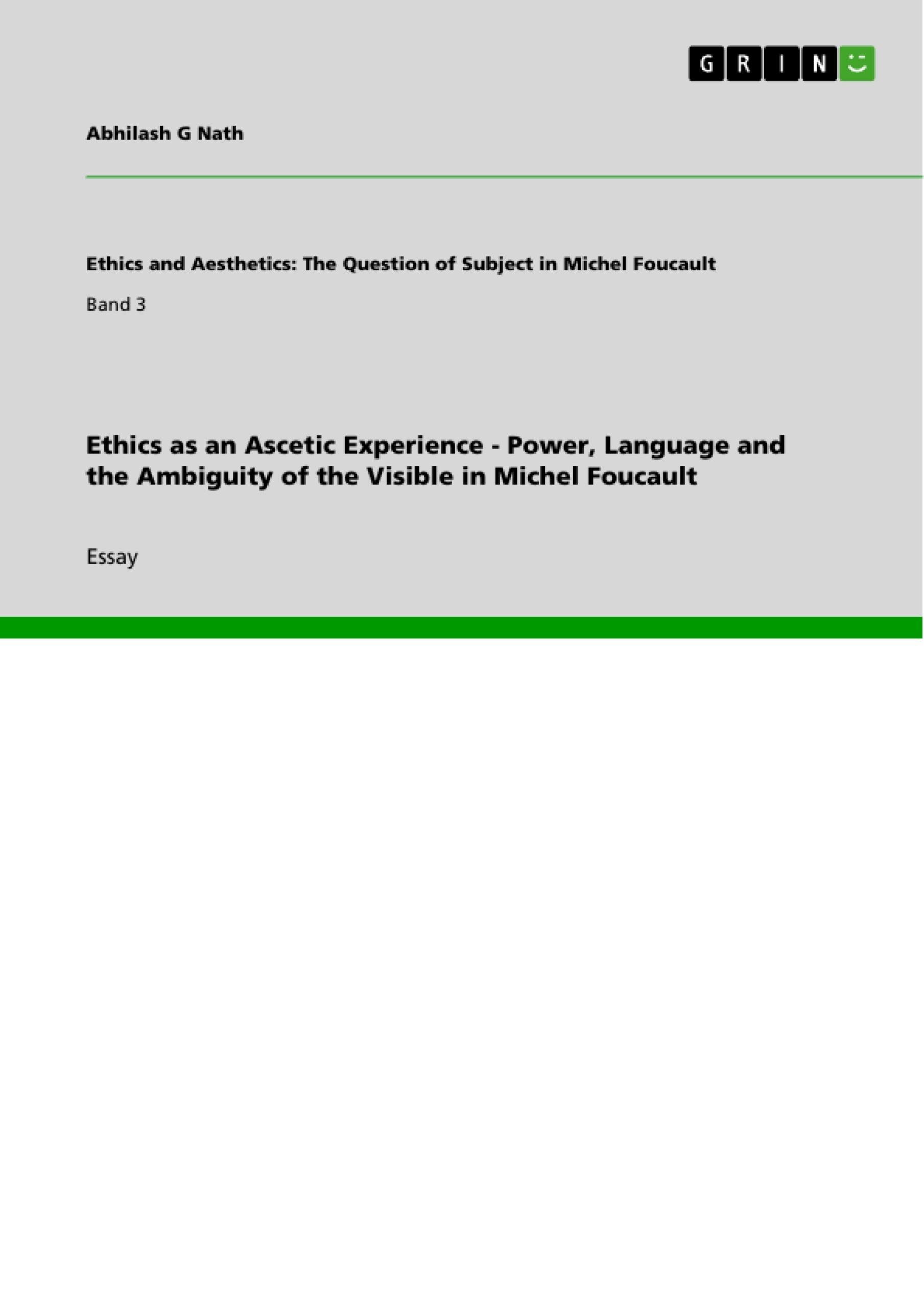the directions often and repeatedly taken in most of the works that have been undertaken on Foucault are to place him within the general continental philosophy; to examine the theoretical and methodological breaks and continuities within his work and between his work and other major figures in the discipline; to examine the nature of his work, that is, to say whether he can be placed part on the thesis, the accepted “classics” of Continental Thought, or with the postmodern, post-structural antithesis; to examine the outcome of his work or what impacts his work has had on Western culture. The present study rather asks a very simple and straightforward question and, that is, how did the way Foucault use historical archaeology allowed him, as an analyst, to change himself from within? Or how Foucault’s usage of language constantly changed himself from within? Or what is there in language, if it comes from outside, that transforms the reader from within?
Inhaltsverzeichnis (Table of Contents)
- Scope and Objectives
- Literature Review
- The Present Study and its Direction of Problematization
- Ontological Status of Statement in Foucault's Historical Archaeology
Zielsetzung und Themenschwerpunkte (Objectives and Key Themes)
This synopsis aims to investigate how Foucault's methodology of historical archaeology enabled him to undergo personal transformation through language analysis. It explores the role of language and visibility in shaping power relations and the possibility of freedom within these structures.
- Foucault's concept of historical archaeology and its relationship to personal transformation
- The interplay between power, language, and visibility in shaping subjectivity
- The nature and function of statements in Foucault's discourse analysis
- The possibility of practicing freedom within the constraints of language and power
- The ontological status of statements and their relationship to Lacanian concepts of the gaze
Zusammenfassung der Kapitel (Chapter Summaries)
- Scope and Objectives: This chapter introduces the central question of the synopsis: how did Foucault's methodology of historical archaeology contribute to his personal transformation? It distinguishes the study from other Foucauldian interpretations, focusing on his personal evolution rather than broader theoretical or historical analyses.
- Literature Review: This chapter examines existing literature on Foucault's methodology and its impact on understanding power relations and subjectivity. It reviews key works that analyze Foucault's historical archaeology and genealogy, highlighting different interpretations of his methods and concepts.
- The Present Study and its Direction of Problematization: This chapter delves into the study's central argument, exploring how Foucault's understanding of visibility and discursive formations relates to the practice of freedom within language analysis. It examines the role of language as a system of power and the potential for enacting freedom within its constraints.
- Ontological Status of Statement in Foucault's Historical Archaeology: This chapter analyzes the nature and function of statements in Foucault's discourse analysis, comparing them to Lacanian concepts of the gaze. It argues that statements have a specific mode of existence, characterized by both visibility and obscurity, and explores how this relates to the concept of a "panopticon structure" inherent in language.
Schlüsselwörter (Keywords)
The synopsis focuses on the intersection of key concepts such as historical archaeology, discourse analysis, power relations, visibility, subjectivity, freedom, language, statement, Lacanian gaze, and personal transformation. These terms are central to understanding Foucault's methodology and its implications for personal and social analysis.
Frequently Asked Questions
How did Foucault use historical archaeology for personal transformation?
The study investigates how Foucault's methodology of analyzing historical discourses allowed him to change himself from within, rather than just acting as a detached academic observer.
What is the relationship between language and power in Foucault's work?
Foucault views language as a system of power that shapes subjectivity. The synopsis explores how visibility and discursive formations define the constraints within which individuals exist.
What is the "ontological status of a statement" in this context?
It refers to the specific mode of existence of statements in discourse analysis, characterized by a balance of visibility and obscurity, similar to a panopticon structure.
Does the study connect Foucault to Lacanian concepts?
Yes, the text explores the relationship between Foucauldian statements and the Lacanian concept of the "gaze" to understand how individuals are shaped by external structures.
Is freedom possible within Foucault's structures of power?
The study examines the possibility of practicing freedom within the constraints of language and power, looking at how personal transformation can occur through discourse analysis.
- Citar trabajo
- Abhilash G Nath (Autor), 2011, Ethics as an Ascetic Experience - Power, Language and the Ambiguity of the Visible in Michel Foucault, Múnich, GRIN Verlag, https://www.grin.com/document/166669



